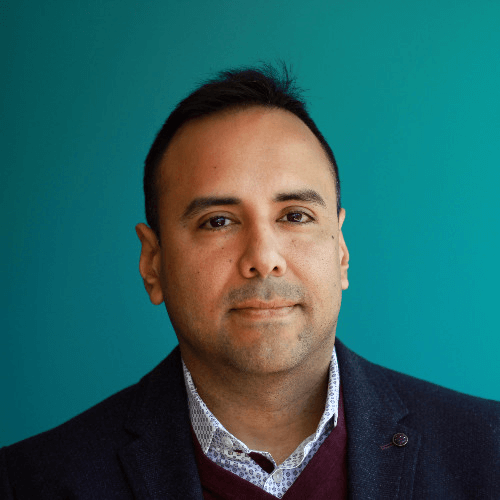Mario Picon, PhD is senior program director at Results for Development (R4D), leading the Governance Action Hub, an umbrella initiative. He is a thought leader in governance, evidence-informed policy and cooperation in the international development space. Mario brings over 20 years of experience and a start-up approach to developing and managing initiatives that tackle complex development challenges. His experience spans multiple sectors in international development, particularly leading policy dialogue and stakeholder engagement in different regions of the world. Mario has worked at the Food and Agriculture Organization of the United Nations (FAO), the World Bank, the Inter-American Development Bank (IDB), 3ie, the Brookings Institution as well as in Peru’s public sector, and with civil society organizations at local and global levels.
At R4D, Mario leads a portfolio on governance, multistakeholder engagement, state capture and climate action. At the Governance Action Hub, he and his colleagues have built an incubator model for collaborative and system approaches to governance to build and implement solutions to concrete challenges. Before, he was the director of the Leveraging Transparency to Reduce Corruption (LTRC) program, a global initiative of the Brookings Institution and R4D, focused on knowledge brokerage and strategy-building platforms to overcome corruption risks in the extractive sector around the world. Mario positioned LTRC to become a change hub for the governance of the energy transition and the management of mining, gas and oil revenues.
Before joining R4D, Mario was a senior evaluation specialist at International Initiative for Impact Evaluation (3ie), managing their public goods line of work and the relationship of the organization with partners in Latin America, as well as managing evaluations in Ghana (DFID), Tanzania (Technoserve) and China (with different government agencies). He also led or collaborated on scoping work focused on intimate partner violence prevention, evidence for peacebuilding and youth employability.
At the World Bank, he managed the South Asia Poverty and Social Impact Analysis trust fund, coordinating over 20 projects to apply poverty and social impact analysis to World Bank operations, while setting the foundations for an innovation lab for the South Asia region. He built a social accountability line of work in Pakistan in support of the country office and supported several other World Bank programs. His evaluations in India and South Sudan helped local and international organizations inform their operations and access funds.
Mario holds a PhD in public policy with specialization in international development from the University of Maryland, as well as master’s degrees in agricultural, environmental & regional economics and demography from Penn State. He graduated as an economist from Pontificia Universidad Catolica del Peru, where interaction and exchange with sociology and anthropology students is a key feature.
He also holds certifications in executive leadership, culturally-responsible management and managing for wellbeing. He is currently learning and exploring how to use artificial intelligence and build stronger local-global communities for better collaboration.
A native Spanish speaker, Mario also speaks English and Italian fluently and has basic skills in French and Portuguese.
Videos and Publications
- Video: Evidence for populations that need it most: impact evaluation in humanitarian crises
- Video: Labor Market Impact Evaluation Lab, 3ie member webinar
- Video: La experiencia de MineduLab: Innovation and evidence generation in a Latin American public agency
- Resource: Intimate partner violence prevention An evidence gap map
- Resource: Evidence for peacebuilding An evidence gap map
- Blog: Strengthening impact evaluation ecosystems by supporting local research teams
- Resource: Does a Picture Paint a Thousand Words? Evidence from a Microcredit Marketing Experiment
- Resource: Adapting to adversity: Happiness and the 2009 economic crisis in the United States














